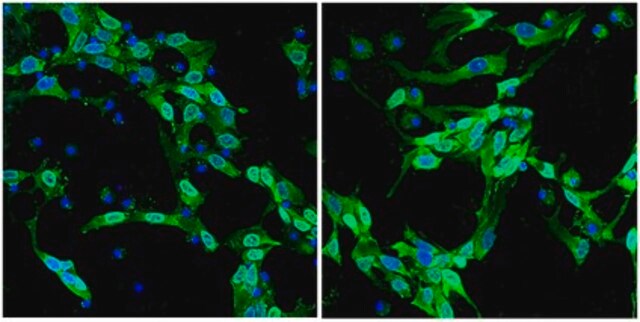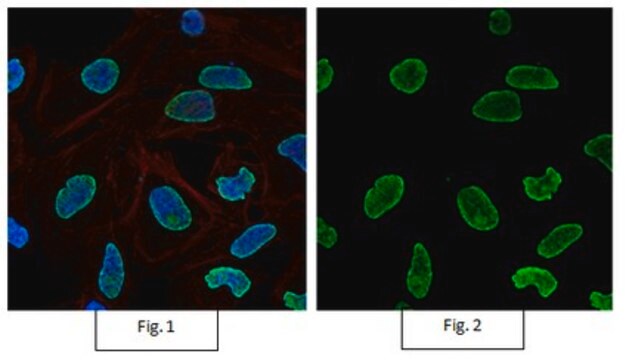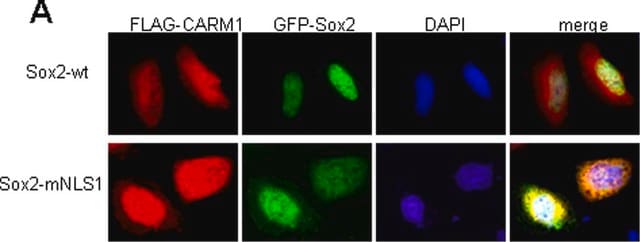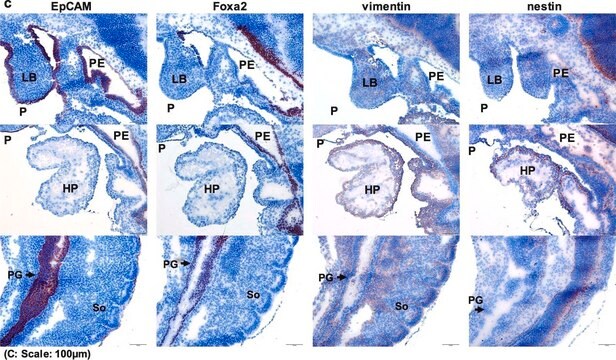06-284-AF488
Anti-Nitrotyrosine Antibody Alexa Fluor™ 488 Conjugate
from rabbit, ALEXA FLUOR™ 488
Synonym(s):
Nitrotyrosine AlexaFluor™ 488 Conjugate
About This Item
Recommended Products
biological source
rabbit
Quality Level
conjugate
ALEXA FLUOR™ 488
antibody form
affinity isolated antibody
antibody product type
primary antibodies
clone
polyclonal
species reactivity
human
species reactivity (predicted by homology)
all
technique(s)
immunocytochemistry: suitable
isotype
IgG
shipped in
wet ice
target post-translational modification
nitration (Tyr)
Gene Information
human ... NOS1(4842)
General description
Specificity
Immunogen
Application
Signaling
Developmental Signaling
Quality
Immunocytochemistry Analysis: A 1:100 dilution of this antibody detected Nitrotyrosine in A431 cells treated with 5 mM peroxytnitrite.
Physical form
Storage and Stability
Other Notes
Legal Information
Disclaimer
Not finding the right product?
Try our Product Selector Tool.
Storage Class Code
12 - Non Combustible Liquids
WGK
WGK 2
Flash Point(F)
Not applicable
Flash Point(C)
Not applicable
Certificates of Analysis (COA)
Search for Certificates of Analysis (COA) by entering the products Lot/Batch Number. Lot and Batch Numbers can be found on a product’s label following the words ‘Lot’ or ‘Batch’.
Already Own This Product?
Find documentation for the products that you have recently purchased in the Document Library.
Our team of scientists has experience in all areas of research including Life Science, Material Science, Chemical Synthesis, Chromatography, Analytical and many others.
Contact Technical Service








